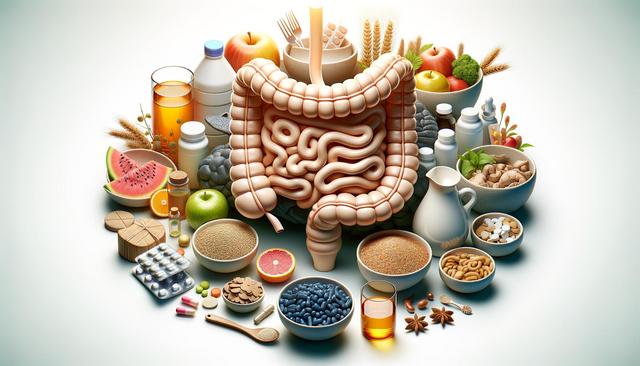Understanding the Root Causes of Bloating
Bloating often feels like an uncomfortable fullness or swelling in the abdomen, and it can be triggered by various digestive issues. Some common causes include overeating, eating too quickly, food intolerances, and excessive gas production. Recognizing the underlying cause is the first step toward finding relief from gas in stomach discomfort. In some instances, bloating may also be a symptom of more serious conditions like irritable bowel syndrome (IBS) or small intestinal bacterial overgrowth (SIBO), so it’s important to monitor persistent symptoms and seek medical advice when necessary.
There are also habits that make bloating worse, such as:
- Chewing gum frequently
- Drinking carbonated beverages
- Eating too fast and not chewing food thoroughly
- Consuming fatty or fried foods
Being mindful of these behaviors can help reduce the chance of bloating occurring or becoming chronic.
Dietary Adjustments and Helpful Foods
One of the most effective ways to get rid of belly bloat is to make thoughtful dietary changes. Identifying and avoiding trigger foods is key, but it’s equally important to add foods and drinks that help bloating. These can support digestion and reduce inflammation in the gut. Some examples include:
- Ginger and peppermint tea
- Fennel seeds
- Cucumber and watermelon (high water content)
- Yogurt with live probiotics
These choices can ease digestion and reduce bloating symptoms naturally. Staying hydrated and eating smaller, more frequent meals can also support better digestion and minimize excessive gas buildup.
Incorporating fiber-rich foods gradually is also beneficial. While fiber helps digestion, introducing it too quickly can actually worsen bloating. A balanced approach is essential for long-term digestive health.
Natural and At-Home Remedies for Quick Relief
For those seeking fast and accessible solutions, bloating home remedies and bloating fast remedie options offer valuable support. Simple techniques such as gentle abdominal massage, warm compresses, or light exercise like walking can promote gas movement and reduce discomfort.
Additional home remedies include:
- Drinking warm water with lemon
- Taking a spoonful of apple cider vinegar diluted in water before meals
- Using herbal teas like chamomile or dandelion
These remedies are often easy to implement and can be effective in managing mild bloating episodes. However, consistency and observance of symptoms are necessary to determine what works best for individual cases.
The Role of Supplements in Digestive Health
Supplements can be a helpful part of a broader digestive health plan. Some of the best supplements for bloating support gut flora, improve digestion, and reduce gas buildup. Probiotics, digestive enzymes, and activated charcoal are among the most commonly used options.
When selecting supplements, it’s important to look for:
- Probiotic strains like Lactobacillus and Bifidobacterium
- Digestive enzyme blends that include protease, lipase, and amylase
- Natural anti-inflammatories such as turmeric or ginger extracts
These supplements can support the body’s ability to break down food efficiently and maintain a balanced gut microbiome. However, they should be used responsibly and preferably under the guidance of a healthcare professional, especially when used regularly or in combination with other medications.
Lifestyle Changes for Long-Term Relief
In addition to diet and supplements, modifying daily routines can make a significant difference in digestive comfort. Simple lifestyle changes not only help get rid of belly bloat but also contribute to overall well-being.
Consider adopting these long-term strategies:
- Eating slowly and mindfully
- Maintaining regular physical activity
- Managing stress through techniques like meditation or yoga
- Getting enough sleep to support digestive processes
These practices can reduce the likelihood of recurring bloating and support a healthier digestive system overall. Tracking food intake and symptoms in a journal can also help identify patterns, making it easier to adjust habits accordingly.
Finally, avoid habits that make bloating worse, such as eating late at night or frequently consuming highly processed foods. Making a few mindful adjustments can have a lasting positive impact.




Leave a Reply